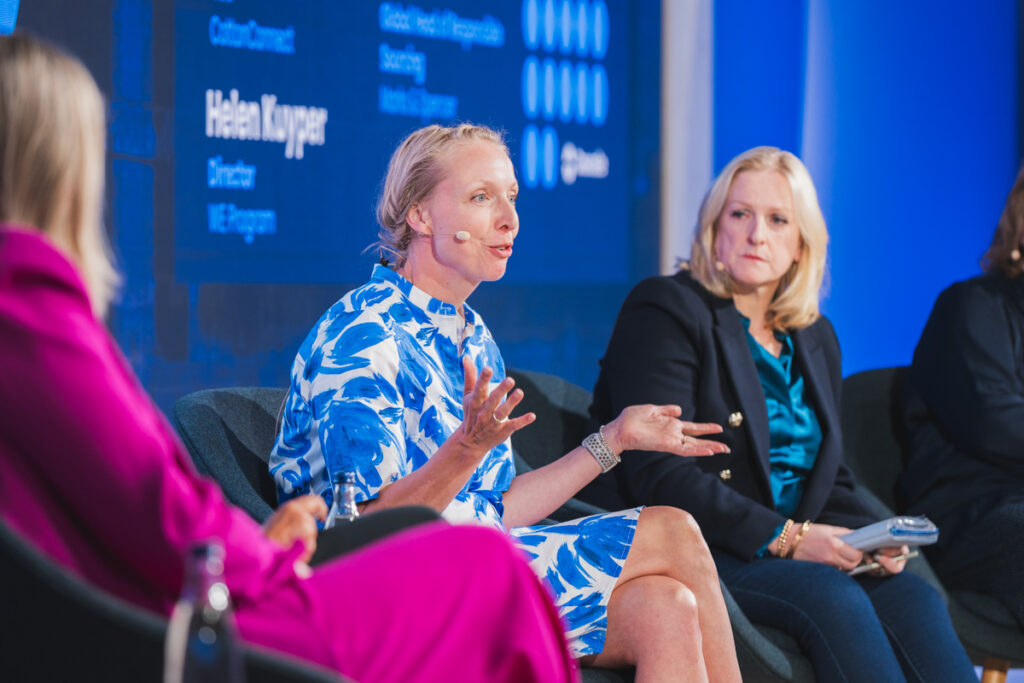This shift, reflected in the organization’s structure and membership team architecture, addresses the need for more equitable representation across the supply chain and reinforces Cascale’s commitment to transparency and accountability in tool development and industry standards. By better balancing the influence of brands and suppliers, Cascale aims to foster industry-wide collaboration and build stronger, more equitable partnerships across the consumer goods industry.
As a multi-stakeholder initiative (MSI) nonprofit organization, Cascale’s mission serves the entire value chain without bias, ensuring equity and accessibility for all. With this in mind, the organization will continue to strive to balance the needs and voices of a diverse range of stakeholders – from large to small companies, manufacturers, brands, and NGOs – who work together to shape the future of the organization and achieve shared goals for the consumer goods industry.
In response to this feedback and ongoing conversations, Cascale has both restructured its membership team, shifting from a regional focus to one based on member type, and will be implementing new governance processes. These changes are designed to better serve manufacturer and brand/retailer members while affiliate members remain engaged through the stakeholder engagement team. All members can expect more tailored support and opportunities, through new structured processes to enable deeper collaboration as the transition progresses.
“With this new member engagement structure, our goal is to build a more inclusive representative and impactful system, ensuring that all voices, especially manufacturers, are heard and engaged meaningfully in all areas of our work, including the ongoing evolution of the Higg Index, and development of collective action programs,” said Andrew Martin, executive vice president at Cascale. “By focusing on equitable partnerships and streamlining processes, Cascale is strengthening its commitment to transparency, accountability, and industry convergence. These changes will allow us to better serve our members, support regulatory compliance, and drive impactful sustainability outcomes across the entire value chain.”
Cascale’s membership engagement teams, in particular, have been instrumental in advocating for this structural change. They have worked diligently to seek out and elevate feedback from members, especially manufacturers, ensuring that their needs are better reflected in decision-making processes. Their efforts have helped bring forward a more inclusive approach that will improve representation for manufacturers and elevate their role in shaping Cascale’s tools and initiatives.
Reflected in recruitment for membership team members, including the new role of Senior Manager, Membership Governance, Cascale’s evolved structure enables deeper collaboration, addressing feedback from suppliers who have called for more practical support and engagement. It strengthens Cascale’s commitment to collective action and underscores the organization’s ongoing reflection and adaptability. The new structure also aligns with recommendations from researcher Ilishio Lovejoy. Cascale supported Lovejoy’s two-year study on MSIs by granting her access to materials and facilitating interviews with staff and stakeholders. She presented her case study at Cascale’s recent Annual Meeting in Munich; there, she also joined a panel that included board members representative of the organization’s three sectors, to discuss the theory of fair process.
“It was an absolute pleasure to present my research on collective action tensions at Cascale and explore how fair process can be a valuable mechanism to examine and reduce the structural, functional, and emotional tensions within this multi-stakeholder initiative,” Lovejoy stated, after the event. “I’d also like to thank Colin Browne and the Cascale board for inviting me to present and showing openness to have honest and difficult conversations in the pursuit of better collective action.”
Cascale remains committed to supporting the manufacturing sector, which is vital to achieving shared collective action goals. The organization recently announced positive impacts of its Manufacturer Climate Action Program (MCAP), a pivotal initiative that unites manufacturers worldwide to combat climate change and welcomes Cascale members and non-members alike. In September, Cascale also announced a collaboration with the Bangladesh Garment Manufacturers and Exporters Association (BGMEA) aimed at promoting environmentally and socially responsible practices within the apparel sector in this critical region.
Supplier input continues to be a priority as Cascale evolves its Higg Index tools—used by 40,000 companies and exclusively available on Worldly. Each year, the tools are updated to respond to the needs and priorities of its members. These updates ensure the tools deliver the most accurate data to help drive sustainable business decisions and further support compliance on current and emerging reporting obligations. In Q4 2024, updates to the Higg Materials Sustainability Index (Higg MSI) and Higg Facility Environmental Module (Higg FEM) will incorporate member and stakeholder feedback.
Updated in October, the Higg MSI, a cradle-to-gate environmental assessment tool for materials, reflects three years of industry-wide collaboration on a cotton-specific methodology and model, setting a new standard for consistency and reliability in fiber-specific data. In November, the Higg FEM update will also build on deep collaborative work; in 2023, the last major Higg FEM update incorporated input from over 140 experts, with manufacturers being the largest represented group.
Together, Cascale’s stakeholders are united to accelerate climate action and catalyze impact at scale through a unified approach to sustainability that drives meaningful change.




